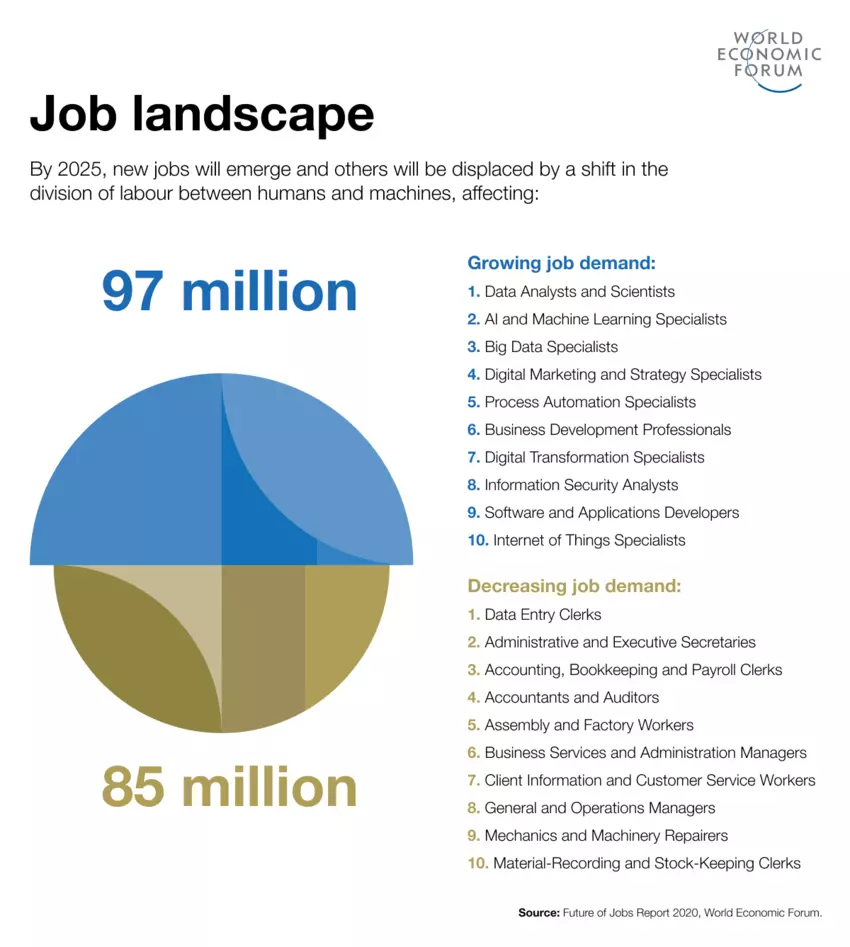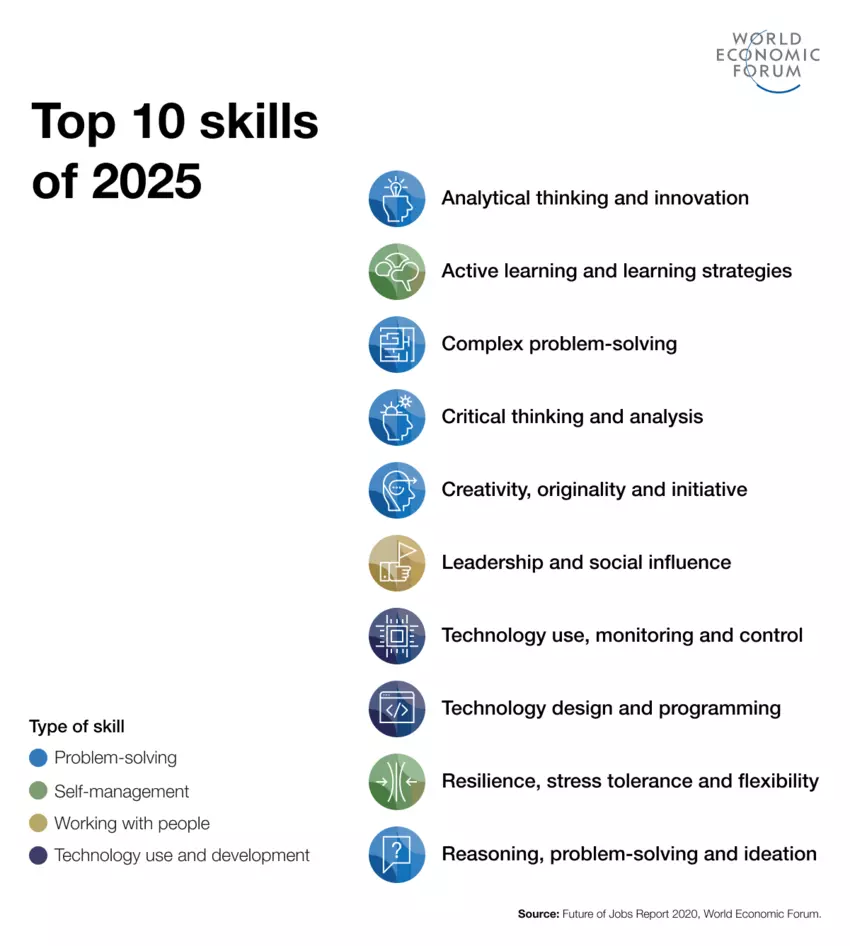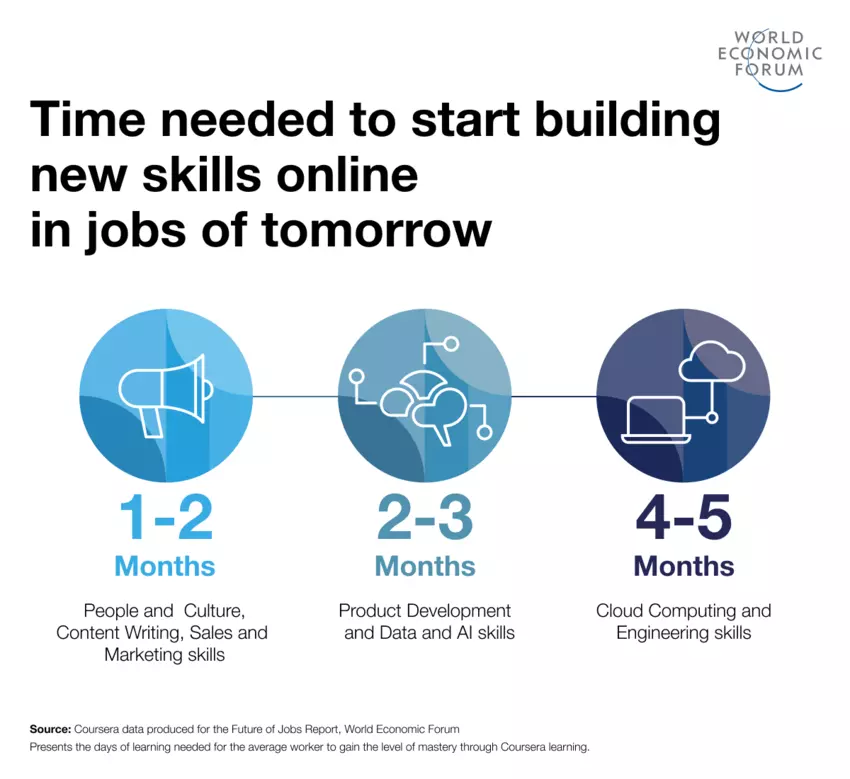The socio-economic impact of the ongoing COVID-19 pandemic has led to various uncertainties that spare no one – not even young people.
For students, they might be compelled to reflect on whether they are studying the right course that can lead them to the right job, and whether they will be able to find work after their studies.
For young professionals, they might need to reassess on whether they have the right skills that not only meet the demands of their employers, but also enable them to have a successful career in the long run.
And for those who have lost their jobs during the pandemic, they wonder if they will ever have the opportunity and determination to rebuild their respective careers and earn a living again.
In a post COVID-19 world, finding and maintaining a job may prove more challenging than ever before, as indicated in The Future of Jobs 2020 report by the World Economic Forum.
The report, which was released in October 2020, has found that as a result of COVID-19, the job market has changed faster than expected, and that the “future of work” is now here.
Here are a few of many key findings from the report that we believe are relevant to youths. You can read more of it at https://www.weforum.org/reports/the-future-of-jobs-report-2020:
Jobs in the next five years

By 2025, 85 million jobs worldwide, particularly in medium and large enterprises, will be disrupted by automation and a new division of labour between humans and machines, with the latter focusing primarily on information and data processing, administrative tasks and routine manual jobs.
This comes as many businesses are accelerating plans to use new technologies, digitalise work processes, and automate some roles in their organisations.
Around the same period, there will be 97 million new jobs emerging in the care economy, industries related to digital technology, and content creation fields.
Furthermore, there will be an increasing demand for talents who can take on jobs in the green economy, roles in the data and artificial intelligence economy, and new positions in cloud computing, engineering and product development.
Skills that matter in the next five years

Soft skills remain relevant by 2025, as there will still be tasks where humans have the comparative advantage such as managing, advising, decision-making, reasoning, communicating and interacting.
Particularly vital are skills related with problem-solving, working with people, and self-management – a set of skills that has been put at the forefront since 2020 that include active learning, resilience, stress tolerance and flexibility.
Most importantly, for those who are expected to remain in their roles in the next five years, 50 percent of them will need to reskill their core skills.
Fortunately, more businesses are recognising the importance of reskilling their workforce; 66 percent of employers surveyed for The Future of Jobs 2020 report are looking forward to a return on investment in upskilling and reskilling their present employees within one year.
Time needed to learn new skills

Online learning has become more commonplace since the pandemic, as many take the initiative to join online courses, as well as take the advantage of learning opportunities offered by their employers or through government programmes.
While those in employment focus largely on personal development courses; those unemployed concentrate on digital skills like data analysis, computer science and information technology.
Interestingly, based on data from online learning platform Coursera, those who want to gain skills related with people and culture, content writing, and sales and marketing can achieve it within one to two months.
Meanwhile, those who want to master at least the basics of technical subjects such as cloud computing and engineering can consider a learning course that last between four to five months.
Photo by Jason Wong on Unsplash.




